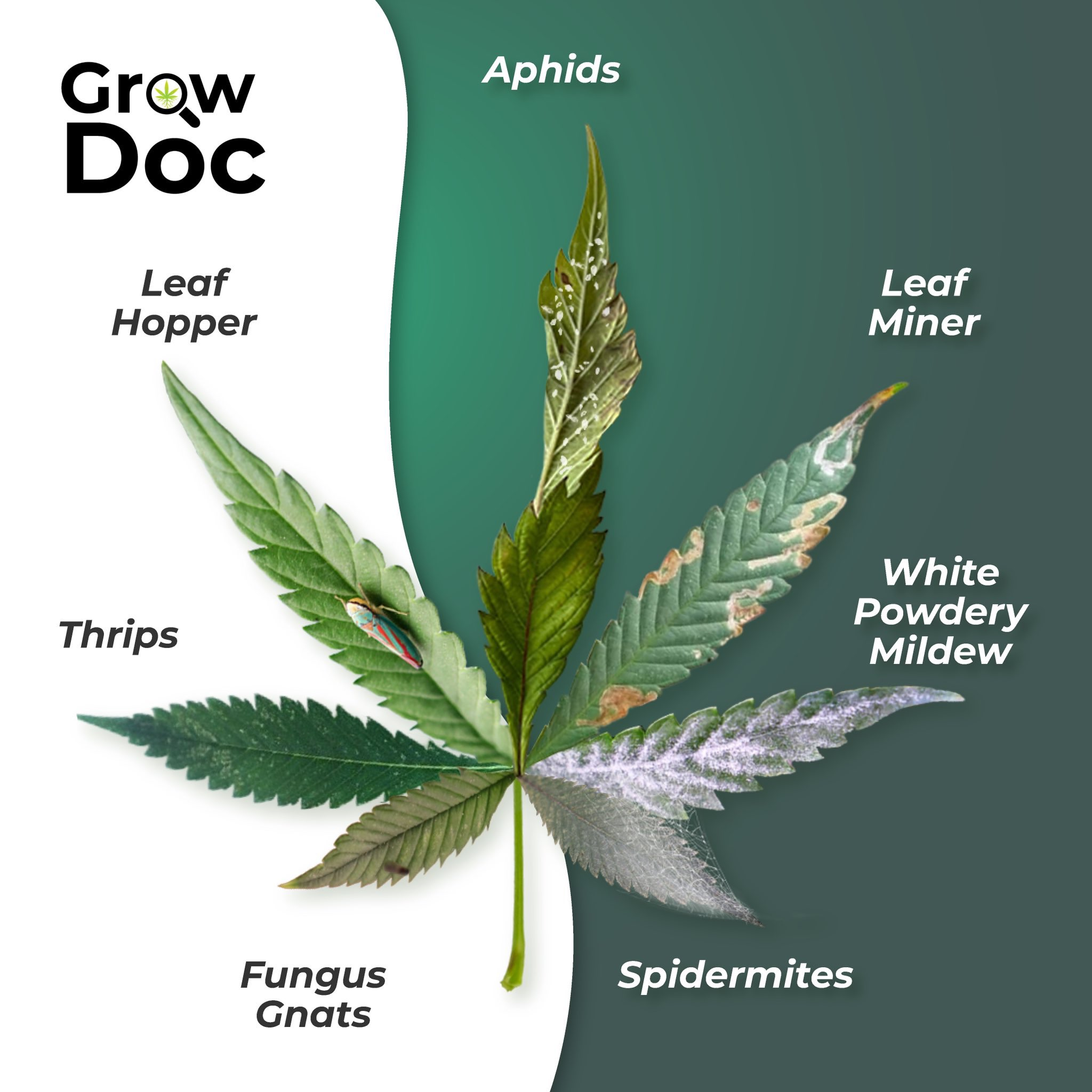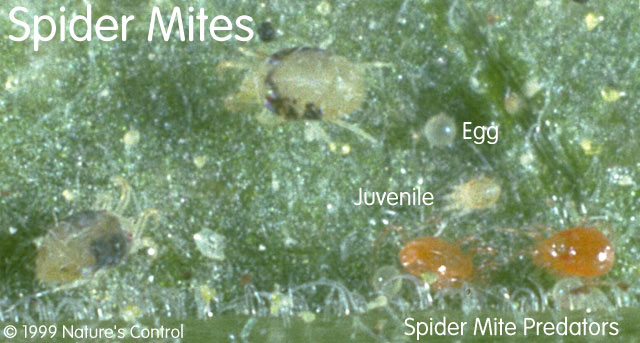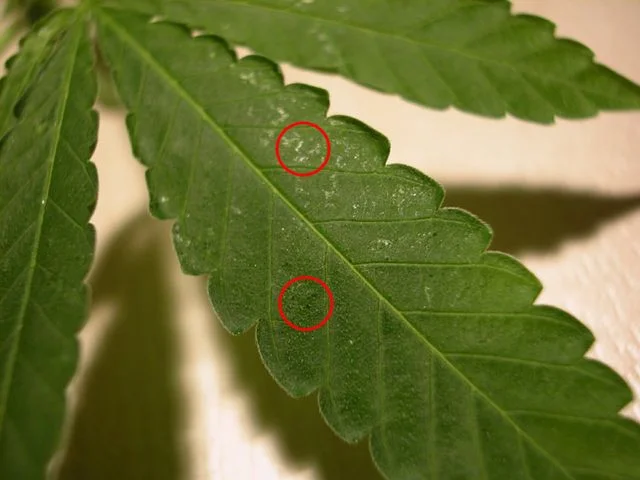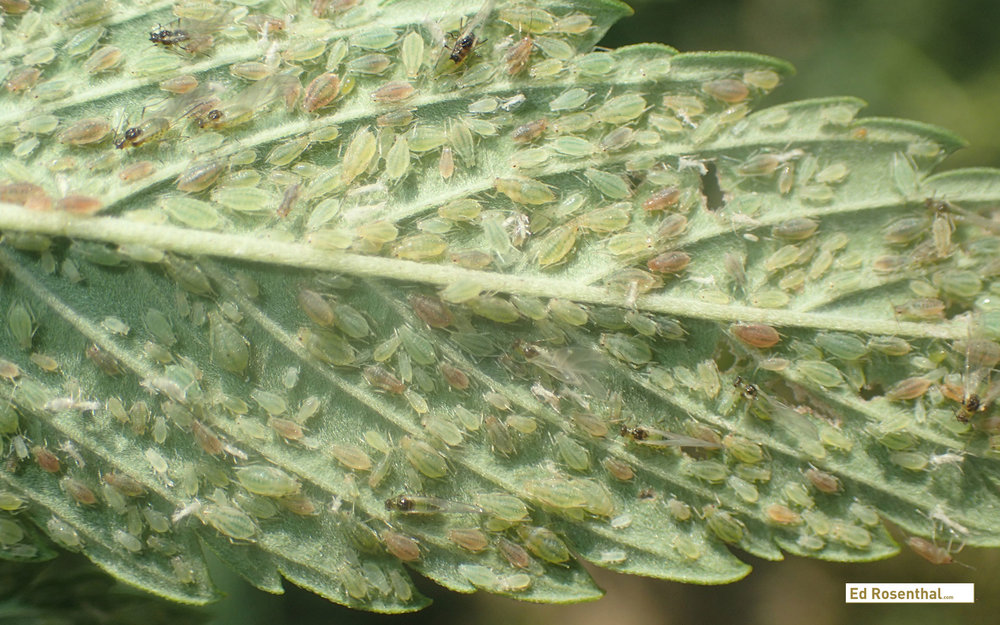Pests and insects: Difference between revisions
(thrips, aphids, soaps) |
m (Added diagram) |
||
| Line 1: | Line 1: | ||
| − | There are several insects (as well as other wildlife) a plant can fall victim to when growing outdoors. Here you will find explanations of common pests and methods for repelling them. |
+ | There are several insects (as well as other wildlife) a plant can fall victim to when growing outdoors. Here you will find explanations of common pests and methods for repelling them. |
| + | [[File:Appearance of pests on fan leaves.png|thumb]] |
||
| − | |||
| + | [[File:Spider mites.jpeg|thumb|352x352px|alt=|Spider mites]] |
||
=== Common Insects === |
=== Common Insects === |
||
Latest revision as of 17:39, 20 September 2022
There are several insects (as well as other wildlife) a plant can fall victim to when growing outdoors. Here you will find explanations of common pests and methods for repelling them.


Common Insects
Spider mites
If left for too long spider mites will begin producing webs on the leaf surface, this should be addressed as soon as possible.
Thrips

Thrips are mostly recognizable from the damage they do to leaves.
Aphids

Common solutions
Neem oil
Neem oil can be added to feed water to repel insects such as spider mites or thrips. Be aware that it has a delayed effect and should be applied preventatively.
Insecticidal soap
A soap that can be used to kill insects. Less aggressive than a pesticide and some can be made using household ingredients
Predator insects
It's possible to add "good" insects that will hunt the insects you want to remove. This is only recommended for outdoor grows.
Some example predators for spider mites are Phytoseiulus persimilis and Amblyseius californicus.
For Thrips, you might use Amblyseius cucumeris.